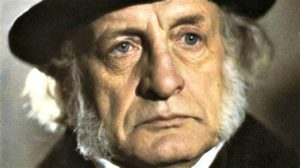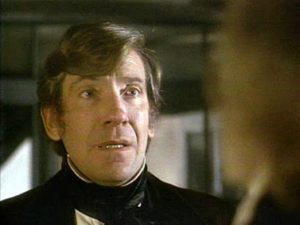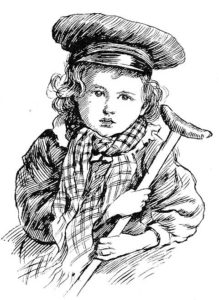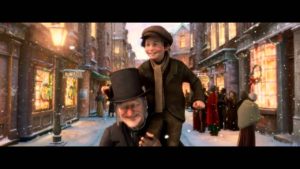
Far from Saving Christmas, Dickens Destroyed
Meaning of Christmas Exemplified by Scrooge
Christmas as a holiday was not fully embraced by the post-Reformation churches for several reasons; mainly its paganistic roots and lack of focus on true redemption of sin in Christ. However, there were two major literary events that saved Christmas; the first, the poem, Twas the Night Before Christmas, by Clement Moore {circa. 1822} and Charles Dickens, A Christmas Carol, written in 1843. While the former introduced Santa Claus as visualized today, the latter was much more destructive in legitimizing the Social Gospel message into society in general and churches in particular. I invite you to read my post, Roots of Social Justice: Social Gospel Progressivism, discussing Social Gospel’s impact on today’s Social Justice movement.
The primary basis of the book, A Christmas Carol, was that circumstances shaped character and if circumstances could be altered than character could be redeemed. The major figure was a stingy rich man, Ebenezer Scrooge, who possessed great wealth but did not use it for anyone’s benefit including his own. I doubt if many people have read the book since ours is a visual society; thus, my analysis will come from the more popular screen plays. Scrooge became a miser at the expense of true love because of his lonely upbringing by a emotionally stinted father. This set him on his course of making money simply to make money even, horrors, at the expense of the poor. The story depicts several businessmen buying grain from Scrooge after rejecting his earlier offer which was apparently lower. Since their demand is greater they have automatically increased its price, supply and demand. They balk at Scrooge’s new offer and try to defend their outrage by saying that his new offer will hurt the poor. Notice, they do not take any responsibility for refusing to buy Scrooge’s grain at a previously lower price nor for selling the grain to the poor at a higher price in order to make a profit themselves. The onerous is thrown entirely onto Scrooge making him the villain.

Bob Crachit is a Powerless Worker
At the Hands of the Heartless Wealthy
Bob Crachit is portrayed as a helpless worker at the hands of a wealthy tyrant forced to work in pitiful conditions below the poverty level wages as we would label him today. What did Bob do to better himself and his family? Did he modify his sexual urges to limit his family according to his income? No! Did he try to increase his marketability after hours to find a better position? No! Did he even try to find a better position with at least better working conditions? No! Bob Crachit lived beyond his means and the story blames Scrooge for his plight. One man lives under his means and is vilified; the other lives beyonds his means and is depicted as helpless whereas he was far from helpless. Dickens’ story depicts nearly all the workers as helpless cogs in a merciless economic system geared only for the merciless rich. It appears that Dickens was under the influence of Marxism.
One of Scrooge’s defenses was the taxes he was forced to pay the government to support the government programs designed to help the poor. As usual, government taxes are wasted monies siphoned from wealth producing enterprises benefiting no one but government bureaucracies that tormented the poor. Government was the real enemy. Monies that could have been given to charities were taken by the government and individual initiative was squashed by the promise of government to deal with the poor. Dickens was a victim of such programs as a youth because of the foolishness of his father; yet, he gives government a pass demonstrating the fatal flaw of most people of his day and ours: ignorance of free enterprise economics. The ignorance he bemoaned in his book was his own and not that of businessmen who developed the businesses that employed the masses who could work their way up job ladder to improve their lot at each rung.

Nothing like the face of an innocent child
To hide the truth behind a propaganda of lies
Tiny Tim’s infirmary was probably the result of malnutrition brought on by his father’s refusal to limit the size of his family and improve his own marketability. Yet, Tiny Tim is the plot device designed to tug on heart strings rather than analyze and understand the true issues of this story: Redemption. Scrooge was to be visited by three spirits which would convict him of his evil stinginess and redeem him to be a generous asset to society. Hence, the beginnings of the Social Gospel movement are found here in Dickens’ story. A good man is one who supports the workers through welfare rather than through opportunities that allow them to better their own lives.
The thrust of each of the spirit’s visitation is to remind Scrooge that he is hated and will die alone. Scrooge hears Bob’s wife vilify him, though Bob defends him, not because of loyalty to Scrooge but because of The Day, meaning Christmas Day. Even Scrooge’s nephew allows his wife and those at his party to laugh at Scrooge showing that he was no more loyal or loving than Bob. The unanswered question, “What is redemption?”

Dickens defines redemption as giving
Welfare replaces Christ as Savior
The result of his vision of dying alone and stripped of all possessions causes Dickens’ Scrooge to repent and start giving away his money: Redemption! What did Bob Crachit learn? Nothing! He had no incentive to improve his marketability since he was now the recipient of economic welfare. Tiny Tim learned that welfare is the solution to meeting one’s needs and loses all incentive to learn a marketable skill whether a trade or skill. He remains dependent on welfare since it cured him. This is the message that will passed on to his children. The story closes with a happy, feel-good message of hope; yet, there is no hope.
Scrooge was afraid of dying alone in the dark. What is the truth? Scrooge would die and immediately find himself in a place of fiery torment: Hell (Lk 16:19-31). Those three spirits would actually be demons from Satan to delude Scrooge and keep him from understanding the true gospel of salvation (De 32:17; 1Co 10:20). The Social Gospel was on its way to replacing the true Gospel in the mainline denominations before severing ties with the Bible and emerging as the Social Justice movement which repudiates any belief in God.
Today evangelical churches display their paganistic trees, set up their mangers and pretend that they are promoting the baby Jesus as the author of peace for the world. This ignores Jesus’ own words that He did not come to bring peace but a sword that divides those who believe from those who reject any truth of God (Mt 10:34-39). The real question that should haunt Christians: “How many have died believing they were doing God a favor in works-based philanthropy and opened their eyes in Hell? “How many have churches sent to Hell promoting the paganistic myths of baby Jesus so they can feel good about the holiday of the Social Gospel?” Poor Ebenezer Scrooge who was deluded into doing good as sinful man demanded rather than being led into a true change of nature via the Gospel of Christ. Dickens could have written that story, a powerful gospel story; but, he did not. He perpetuated the lie that God has allowed because that is what the people demand; a myth (2Th 2:9-12; 2Ti 4:3-4).
